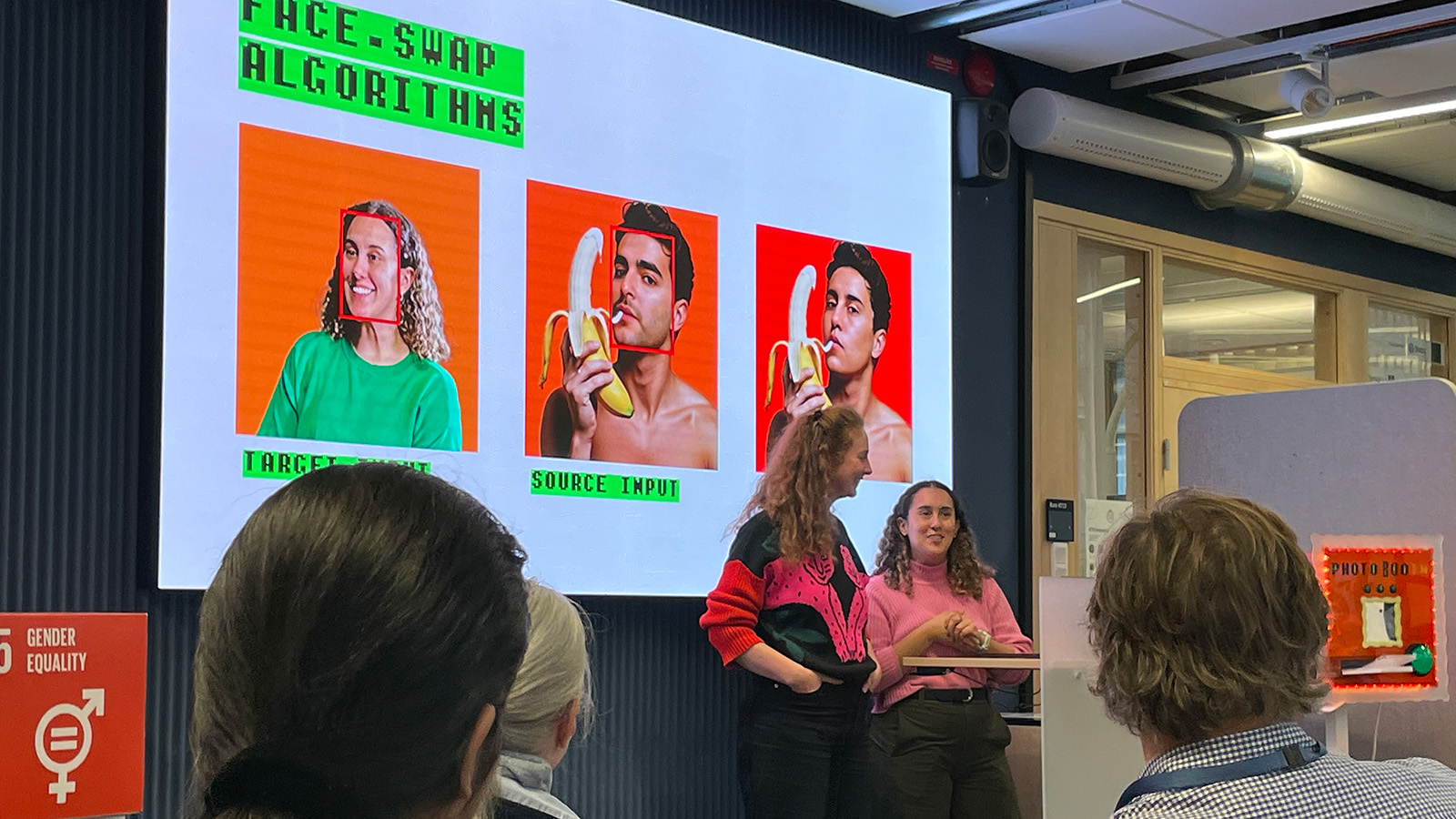The Photo Both: discussions on deepfake pornography

Deepfake pornography (DFP) is an emerging form of gendered violence that predominantly harms women. Two researchers at KTH are exploring ways to mitigate the non-consensual creation, exploitation, and distribution of DFP material, aiming to understand the perpetrators, those affected, and the enabling ecosystem of AI models.
At an InspireTalk on Tuesday, 10 November, researchers Madeline Balaam (KTH) and Alejandra Gomez Ortega (Stockholm University) discussed the evolution, creation, and spread of deepfake pornography. They also presented a prototype of a modified photo booth designed to let participants experience what it feels like to have their image manipulated.
“It’s easier than ever to create fake content, and we asked ourselves what we can do as interaction designers,” says Madeline Balaam. “The photo booth is a way to invite the public into a discussion about consent.”
The installation works like a regular photo booth, except that when participants take their photo, the image is digitally transformed into a mild, safe and “playful” form of sexualised objectification.
“Some people like the pictures, finding them funny or glamorous. Others react more negatively. In both cases, the physical image helps start a conversation about deepfakes, and they can take it with them and show it to friends and family,” explains Alejandra Gomez Ortega.
The photo booth is a key component of an InspireLab-funded pilot project aimed at exploring the possibility of mapping the ecosystem of users and producers of AI tools. The research efforts seek both to understand the individuals who misuse these tools and create public discussions about non-consensual use of digital identities. On site, the researchers collect reactions through post-it notes, field observations, and a link to an online survey.
The photo booth will next be showcased at Kulturhuset during an event on AI: kulturhusetstadsteatern.se/samtal-debatt/idebaren32-ai-basta-van-eller-fiende
Read more about the pre-study: Reimagining Consent: The Case of Deep-fake Porn

